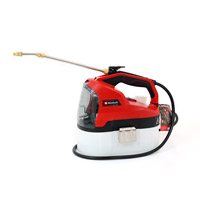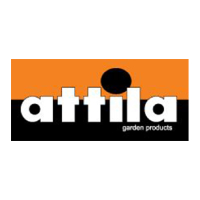Spray Pumps, Mist Blowers and Sprayers
Spray pumps are essential tools for anyone needing to distribute liquids efficiently and precisely. Mist blowers are widely used in agriculture, gardening and industrial applications. In this guide you'll find the benefits of using this equipment and their main features to help you choose the sprayer that best suits your needs.
What are Spray Pumps
Spray pumps are machines designed to transfer liquids from a tank to a specific area using pressure. These pumps can be manual or motorized, allowing control of flow and quantity of sprayed liquid. Spray pumps feature adjustable nozzles that allow varying the spray pattern and flow rate, making them ideal for different needs.
Mist blowers are characterized by a liquid tank where liquids are channeled under pressure through a lance and released through the nozzle. They often feature shoulder straps for carrying or a towing cart that facilitates movement in the work area.

What types of Spray Pumps exist
There are different types of spray pumps, each designed to meet specific application needs. All mist blowers can be grouped into three main categories:
- Hand Sprayers
- Backpack Sprayers
- Cart Sprayers
Additionally, the main types of sprayers are divided into:
- Manual Pressure Pumps:
These pumps are manually operated and require using a lever or handle to create the pressure needed to pump the liquid. They are ideal for light applications and small areas, like watering small gardens or plantings. These come in three types: - Battery Pumps:
Battery pumps are powered by an electrical source, typically a rechargeable battery. They offer more convenience than manual pumps and are suitable for medium-sized applications, like distributing fertilizers or pesticides in gardens or orchards. The battery may be removable or fixed. - Engine Powered Pumps:
These pumps are powered by gasoline or diesel engines and provide a more powerful liquid flow than manual or battery pumps. They are used in large-scale agriculture for distributing fertilizers, herbicides or pesticides over large fields. - Electric Motor Pumps:
Similar to engine powered pumps, these are powered by electric motors. They are quieter and more sustainable as they produce fewer emissions, making them more suitable for indoor use and environmentally sensitive areas.

Areas of use for spray pumps
A spray pump can be useful in various fields, thanks to its versatility and ability to distribute liquids precisely. Some areas where spray pumps are used include:
- Agriculture:
Spray pumps are essential in agriculture for crop irrigation, application of fertilizers, pesticides and other plant protection products. They ensure proper distribution of nutrients and substances needed for healthy plant growth, reducing waste and maximizing crop yields. - Gardening:
In home or professional gardening, spray pumps are used for watering gardens, potted plants and flower beds. They're also useful for applying fertilizers and treatments against plant pests or diseases. - Pest Control:
Spray pumps are used in pest control of indoor and outdoor spaces like homes, offices, schools and public areas to combat insects and pests. Additionally, spray pumps can be used to distribute anti-mosquito treatments to reduce their population. - Industrial Sector:
Spray pumps also find applications in the industrial sector for distributing chemicals, cleaners or disinfectants over large surfaces or in complex industrial environments.

Benefits of using a sprayer
Spray pumps are extremely convenient and useful in agriculture for several reasons:
- Irrigation Efficiency:
Spray pumps allow water or liquid fertilizers to be distributed directly to plant roots, ensuring uniform and optimal coverage. This increases irrigation efficiency and reduces water waste, saving precious resources. - Fertilizer and Pesticide Application:
Spray pumps enable farmers to apply fertilizers and pesticides precisely and targeted. This helps minimize exposure to unwanted chemicals and allows treating only affected areas without damaging surrounding plants. - Time and Labor Savings:
Thanks to their ability to cover large areas quickly, spray pumps allow farmers to save time and effort. This increases overall productivity and allows focusing on other crucial farming activities. - Disease and Weed Control:
Spray pumps allow targeted distribution of pest control substances for managing plant diseases and weeds, helping maintain crops in optimal conditions. - Increased Productivity and Yield:
Efficient use of spray pumps contributes to increased agricultural productivity and crop yields. Proper irrigation and nutrient application improve plant health, promoting healthy and vigorous growth.

Brands
Best Sellers


Stocker Nebla 403
15 L Backpack Pump
with Battery and Charger Included
2.2 Ah - 18V / 15 W
Capacity 15 L - 3.5÷7 bar


Stocker Spray Pump 10L 2.5Bar
with Battery and Charger (238)
2.5 Ah - 12V
Capacity 10 L - 2.5 bar


Stocker Ergo 12L 5Bar
Pump for Aggressive Products
Battery Choice (246)
2.6÷4 Ah - 21V
Capacity 12 L - 3÷5 bar


Stocker Ergo 250 15 L
Pump for Aggressive Products
with Battery of Your Choice
2.6÷4 Ah - 21V
Capacity 15 L - 3÷5 bar


Stocker Trolley and Backpack Pump 15L 5Bar
with Battery and Charger (1247)
10 Ah - 12V
Capacity 15 L - 5 bar


Volpi Elite 16 24PRO16
Battery-Powered Pump 8 bar
Capacità 16 L
3.6 kg - 8 bar


Stocker 230
5 L Spray Pump
with Battery and Charger
2.5 Ah - 12V
Capacity 5 L - 2.5 bar


Stocker Electric Backpack Pump 12L
Battery and Charger Included (239)
2.5 Ah - 12V
Capacity 12 L - 2.5 bar


Stocker 302
Wheelbarrow Pump 60 L
12V Battery Included
36Ah - 12V
Capacity 60 L - 1÷10 bar





















